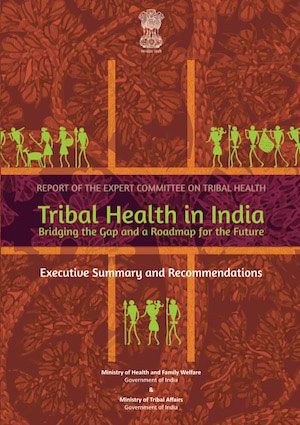
The Jarawa of the Andaman Islands enjoy a time of opulence. Their forests gives them more than they need.
ANVITA ABBI, PROFESSOR OF LINGUISTICS, JAWAHARLAL NEHRU UNIVERSITY
The Dongria Kondh grow over 100 crops and harvest almost 200 different wild foods, which provide them with year-round, rich nutrition even in times of drought.
Over generations, tribal peoples have developed complex systems to live well, together, on their land. They may be poor in monetary terms but tribal people living on their own lands are rich in other ways. They have good reason to be proud of their communities and the ways of life they have chosen.
It’s crazy when these outsiders come and teach us development. Is development possible by destroying the environment that provides us food, water and dignity? You have to pay to take a bath, for food, and even to drink water. In our land, we don’t have to buy water like you, and we can eat anywhere for free. Lodu Sikaka, Dongria Kondh
We don’t want to go to the city and we don’t want to buy food. We get it free here. Malari Pusaka, Dongria Kondh
Life expectancy now is around 60 to 65 years. Before it was 80 to 90 years. It’s because before [our access to our forest was restricted] we ate tubers, fruits, and other forest products, whereas now the Soliga diet is bad. Madegowda, Soliga
You take us to be poor, but we’re not. We produce many kinds of grains with our own efforts, and we don’t need money. Baba Mahariya, Bhil
We say, ‘you don’t have to take care of us. We’ll take care of ourselves. We’ll lead our lives the way we know.’ Arjun Chandi, Majhi Kondh
Tribal peoples’ lives are not static, or ‘stuck in the past’ – they adopt new ideas and adapt to new situations just as we all do. We are all living in the 21st Century. It is simple prejudice that makes us think some peoples are ‘modern’ whilst others are ‘backwards’.
This prejudice is used to justify displacing tribal peoples and pushing them into the ‘mainstream’ – on the assumption that ‘experts’ know what is best for them. […]
Despite often being described as ‘primitive’ and ‘poor’, a study of the hunter-gatherer Jarawa tribe’s nutrition and health found that the Jarawa, who remain self-sufficient on their own land, have ‘optimum nutritional status’. They have a detailed knowledge of more than 150 plant and 350 animal species. […]
Source: Proud Not Primitive
Address : https://www.notprimitive.in/
Date Visited: Tue Jul 02 2013 15:32:00 GMT+0200 (CEST)
“It was assumed that tribal people have same health problems, similar needs and hence the uniform national pattern of rural health care would be applicable to them as well, albeit with some alteration in population: provider ratio. The different terrain and environment in which they live, different social systems, different culture and hence different health care needs were not addressed.”– Abhay Bang, Chairman, Expert Committee on Tribal health (2018 Report of the Expert Committee on Tribal Health)
Learn more >>
Download Tribal Health in India PDF (35 MB) >>
Searchable file (backup):
PDF (OCR 70 MB) >>

“Our moment calls for a bolder reimagination, based not on the constrained, degraded conditions around us but on a more expansive view of history and reality, considering as possible baselines both realities of the past and audacious visions of the future.” – Alexandra Kleeman in “Bolder Reimagining”: 55 Voices for Democracy | Indigenous peoples in the modern world >>
Related posts